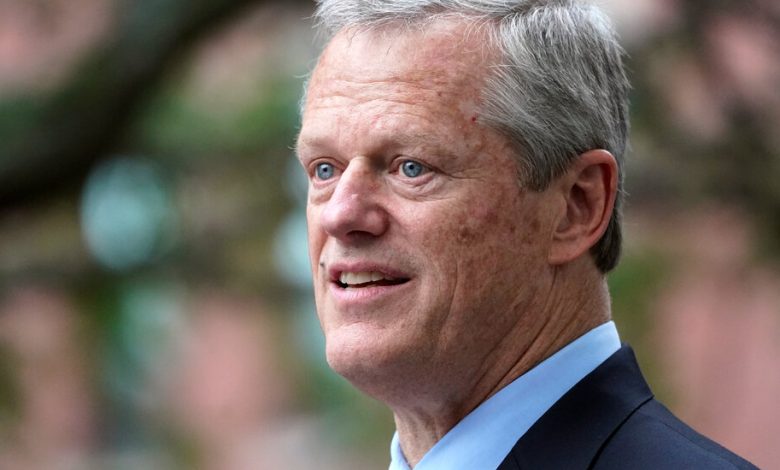N.C.A.A.’s Next President Will Be Gov. Charlie Baker of Massachusetts

The N.C.A.A., which has struggled to govern the shifting landscape of college sports amid rapid changes involving endorsement deals, large media contracts and conference realignment, on Thursday named Gov. Charlie Baker of Massachusetts as the organization’s next president.
Baker, a Republican, has been the governor of Massachusetts since 2015, with his second term ending in January. He will take over as president of the N.C.A.A. in March 2023. Baker will replace Mark Emmert, who will serve as a consultant to the N.C.A.A. until June 2023.
Baker has some familiarity with college sports. He played basketball at Harvard, including eight games for the varsity team in the 1977-78 season. His wife, Lauren, was a gymnast at Northwestern, and their two sons played Division III football.
Baker has not worked in sports in any capacity, working in government and the health industry for all of his professional life. Still, the N.C.A.A. needed “a leader with a different set of skills,” said Mary-Beth A. Cooper, the president of Springfield College in Massachusetts, who served on the search committee.
Baker’s experience in government could help the N.C.A.A. navigate a time when its power in Washington and U.S. statehouses has seemingly diminished and as its pleas for federal legislation to protect its business model from legal challenges have been unsuccessful.
Lawmakers at many levels have become steadily more vocal about making major changes to the foundations of college sports, where athletes are generally compensated by universities for only the costs of attendance. Endorsement income, known as name, image and likeness deals, are done separately between athletes and outside businesses.
“The N.C.A.A. president needs to be able to balance competing priorities, inspire a shared vision and create a broad sense of trust,” said the former Duke and N.B.A. basketball player Grant Hill, who was a part of the search committee. He added: “Charlie Baker has demonstrated the type of results-oriented, bipartisan approach that we will need to bolster the well-being of student-athletes, realize the opportunities and overcome the challenges facing the N.C.A.A.”
